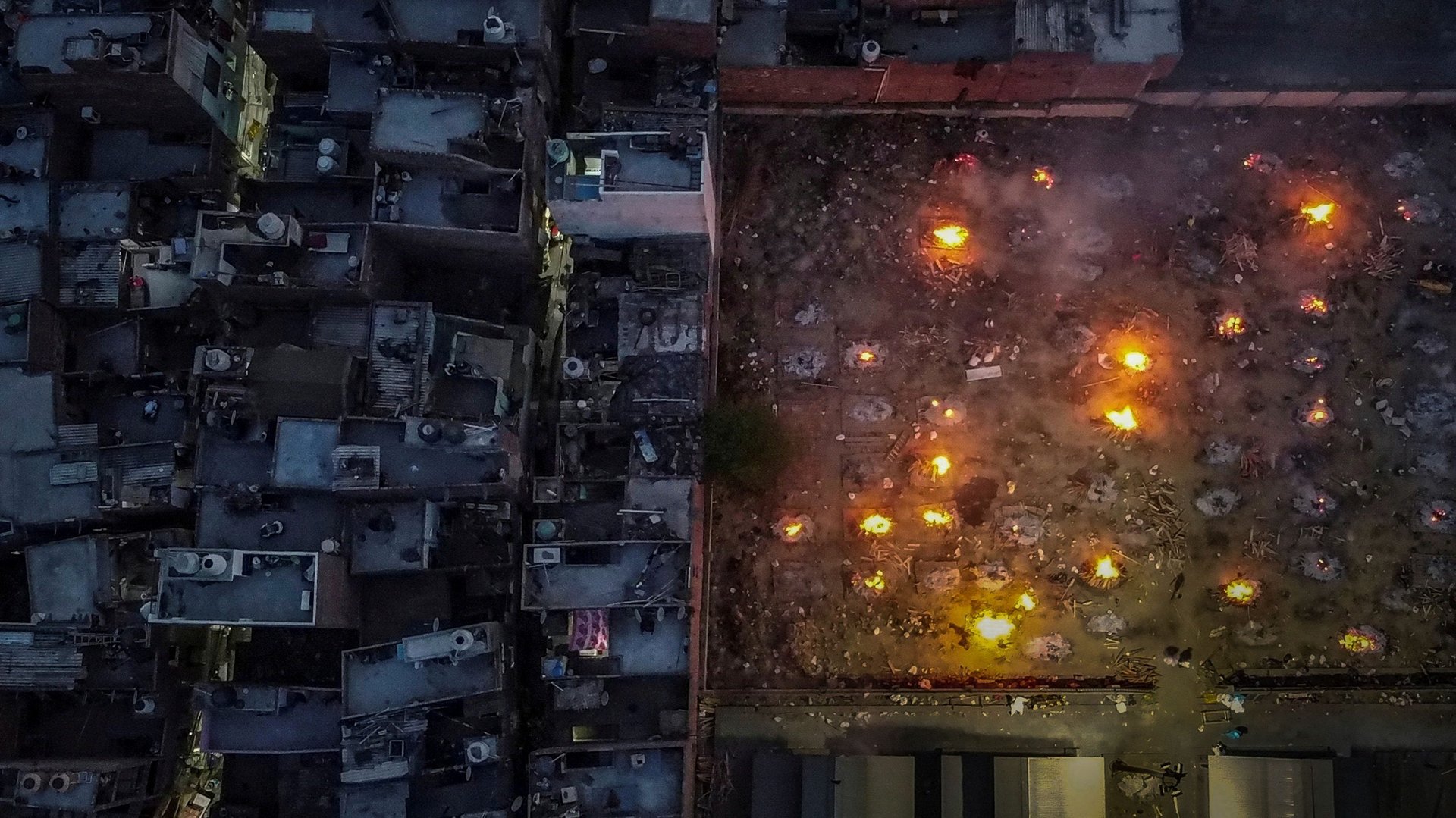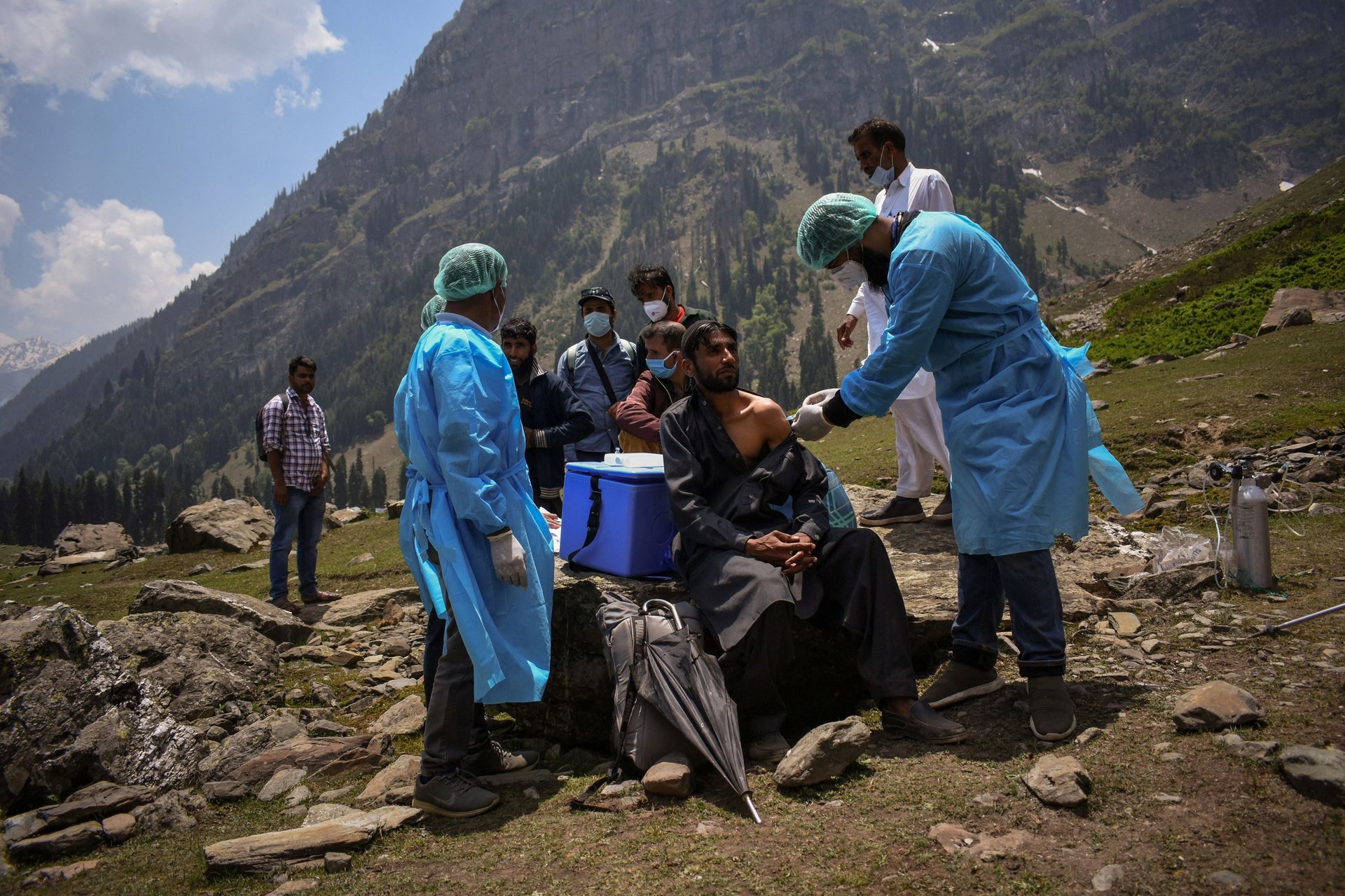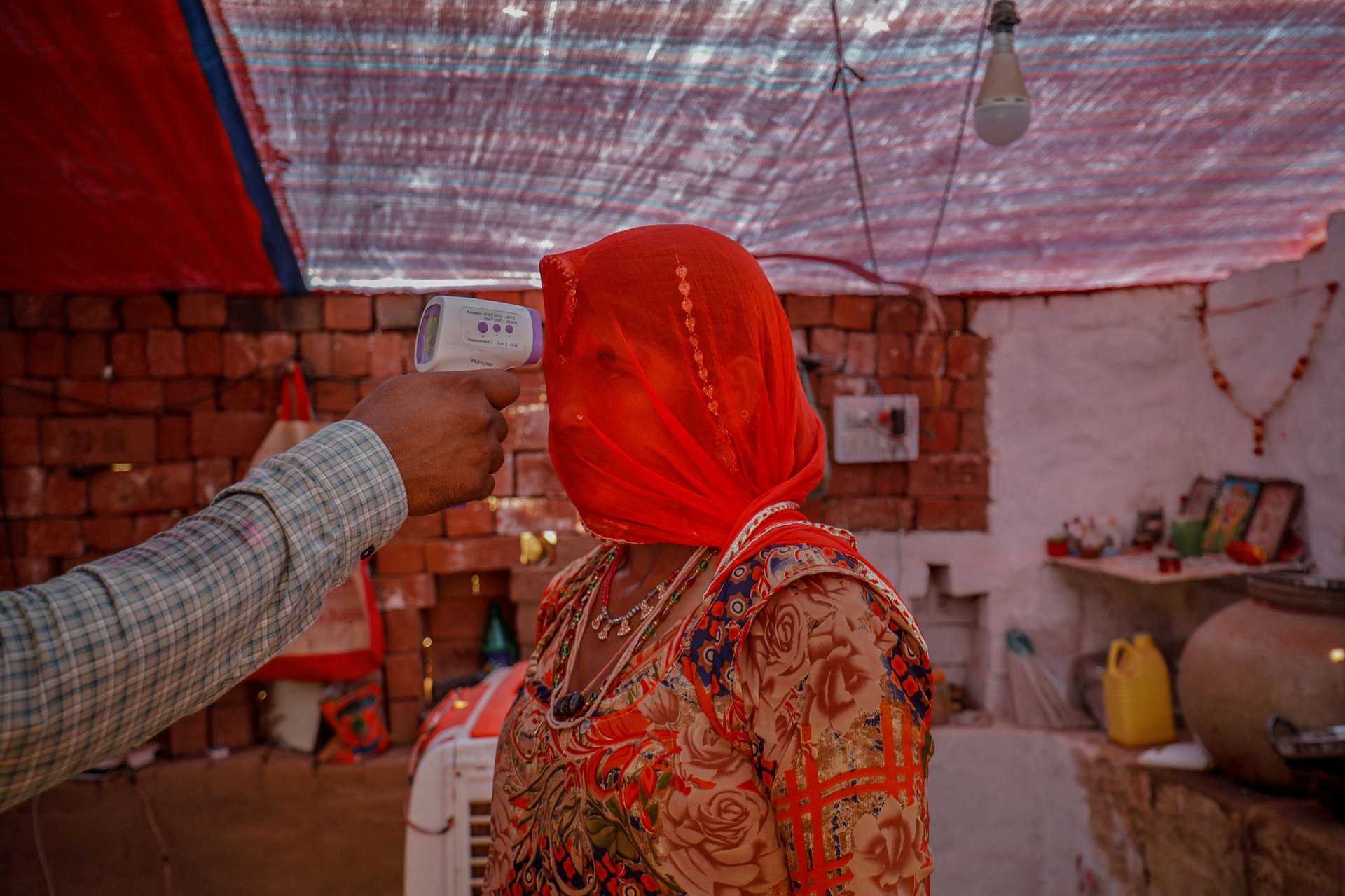Four photojournalists won the Pulitzer for their stark images of India’s covid trauma
Defining images from India’s covid-19 crisis of 2021 now have global recognition.


Defining images from India’s covid-19 crisis of 2021 now have global recognition.
Four photographers in India from the Reuters news agency won the Pulitzer Prize in the feature photo category for 2022. Adnan Abidi, Amit Dave, Danish Siddiqui, and Sanna Irshad Mattoo claimed the recognition for their “images of COVID’s toll in India that balanced intimacy and devastation, while offering viewers a heightened sense of place.”

This is the second Pulitzer for Siddiqui and the third for Abidi. The duo were part of the team that won the Pulitzer for covering the Rohingya exodus in 2018, and Abidi’s work during the Hong Kong protests was awarded in 2020. Mattoo, a 28-year-old resident of Srinagar, is the first Kashmiri woman to win the Pulitzer.
Of the four, Siddiqui’s award was posthumous. He was killed in July 2021 while covering fighting between Afghan security forces and the Taliban. This was shortly after Siddiqui’s stark photos from India’s crematoriums during the second wave of covid-19, which exposed the government’s inability to control the pandemic or accurately count the dead.

Photographs from Reuters were published in international publications like The New York Times, which drew the ire of the government under prime minister Narendra Modi. While there was no direct backlash from the government, Modi, who often uses Twitter to offer condolences to public figures including journalists, remained silent on Siddiqui’s death.
